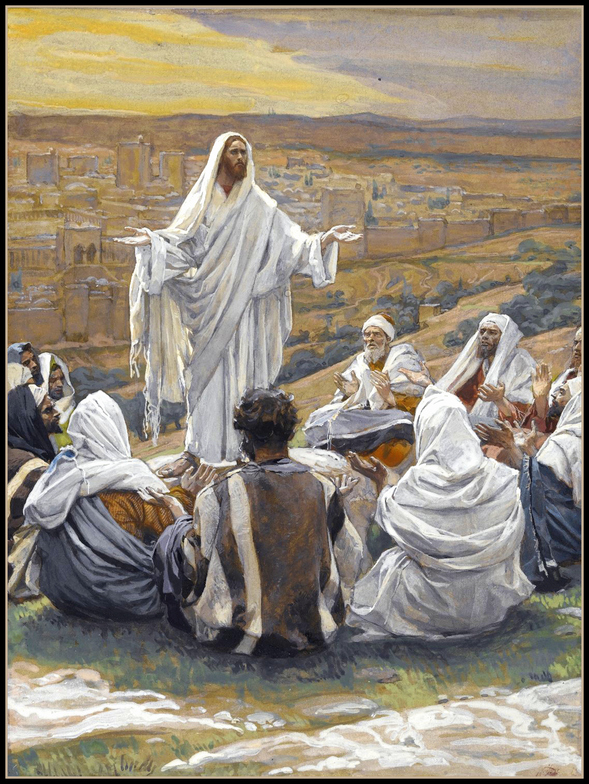
The Mission of the Twelve
The Kingdom of God
Hospitality, Sharing, Communion, Inclusion
The Mission of the Twelve:
‘9 Then Jesus called the twelve together and gave them power and authority over all demons and to cure diseases, 2 and he sent them out to proclaim the kingdom of God and to heal. 3 He said to them, ‘Take nothing for your journey, no staff, nor bag, nor bread, nor money — not even an extra tunic. 4 Whatever house you enter, stay there, and leave from there. 5 Wherever they do not welcome you, as you are leaving that town shake the dust off your feet as a testimony against them.’ 6 They departed and went through the villages, bringing the good news and curing diseases everywhere.’
Luke 9:1-6
The Gospel describes the mission which the twelve disciples received from Jesus.
The objective of the mission is simple and clear: they received the power and authority to cast out devils, to cure the sick and to announce the Kingdom of God. In this respect, they were empowered to act as Jesus himself had already acted.
What are we to make of the mission Jesus gave to the first twelve?
How does this apply to us, as disciples of Christ?
-
While we might not be called to cast out devils, we are called to confront the evil powers of this world in our pursuit of peace and justice.
-
While we might not be gifted with power to heal, we are called to minister to the sick as we care for them.
-
While we might not (all) have the gift of preaching or teaching, we are called to witness to the Kingdom of God in our words and actions.
While the mission that Jesus gave to the disciples may seem extraordinary--almost supernatural--it really is not.
Perhaps, more troublesome for many of us are the instructions that Jesus gives the disciples in carrying out their mission:
“Take nothing for the journey, neither staff, nor haversack, nor bread, nor money and do not have a spare tunic.”
“Really?” we ask. "Are we just supposed to drop everything and leave, taking nothing with us, and trust in the kindness of others to fed, house, and clothe us?"
At the time of Jesus, there were diverse movements of renewal: the Essenes, the Pharisees, and the Zealots. They also were seeking a new way to live in community, and they had their own missionaries (cf. Mt 23:15).
But when they went on mission, they were advised to carry a staff, and a haversack to put their food into. They did not trust that the food they received from others would be clean or pure according to Hebrew dietary laws.
Nor did they associate with the sick or those thought to be possessed. Illness was interpreted as a sign of God’s punishment and possession made one impure and an enemy of God.
In instructing his disciples to cure the sick and cast out devils, Jesus requires them to associate with people others avoided. Theirs is to be an open, accepting community.
Contrary to the other missionaries of the time, the disciples of Jesus are told to take nothing, but simply to trust in God and in the hospitality of others.
Such complete trust testified to the strength of their faith, not only in God, but in the underlying goodness of God’s people. Moreover, by demonstrating such depth of faith, the disciples called forth such trust in others—thus furthering the kingdom.
Jesus directs his disciples to remain in the first house where they enter, until they leave the place. In other words, they should live together in a stable way and not go from one house to another.
They should work with all and live from what they receive in exchange “because the laborer deserves his wages.”
Jesus calls upon the disciples to participate in the life and work of the people and trust that they will be provided for.
Unlike other missionaries, they are not set themselves apart from the people they live with.
Unlike the missionaries from the other sects, his disciples are to be communion with the people they live among and share food with them.
Connection with God does not depend on the strict observation of purity laws, but the building of human relationships.
Wherever, and whenever, the disciples do not find hospitality (the willingness to share is absent), Jesus advises the disciples to move on and to shake off the dust from the feet because such people fail to understand what God requires of them.
Today’s Gospel reminds us that there are four fundamental points of community-living which characterize the attitude of those who be disciples of Jesus:
-
hospitality,
-
sharing,
-
communion,
-
and acceptance of those society excludes.
Whenever these four qualities are present, the kingdom of God is found.
The Kingdom of God, which Jesus has revealed to us, is not a doctrine, nor a catechism, nor a law.
The Kingdom of God comes, and becomes present, when persons, motivated by their faith in Jesus, decide to live together in community: to give witness, and to reveal to all, that God is Father and Mother and that we human beings are all brothers and sisters.
Peace+
Norman
